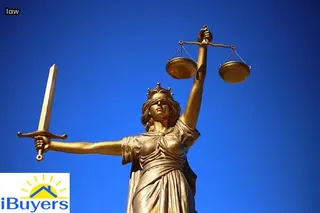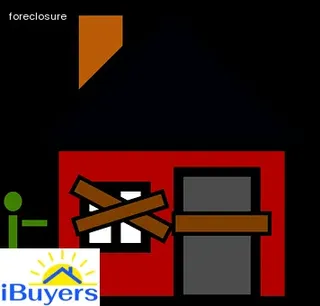Homeowners in Maryland are increasingly facing foreclosure for unpaid Homeowner Association (HOA) and Condominium Owner Association (COA) dues. An HOA assessment is a fee that is charged to homeowners who live in communities managed by an HOA, and the money is used to pay for services such as landscaping, snow removal, pool maintenance and other amenities.
COA assessments are similar to HOA assessments but are applied to condominiums instead of single-family homes. These fees are necessary for maintaining the lifestyle that many people seek out when purchasing property, however it’s important that homeowners understand their financial obligations so they can plan accordingly and avoid falling behind on payments and ultimately foreclosure.
HOA and COA assessments are typically outlined in the governing documents of the community; understanding how these fees are assessed, how often they’re due, how much they cost and who pays them is essential for homeowners so they can stay on top of their payments and keep their home safe from foreclosure.

Paying homeowners association (HOA) and condominium owners association (COA) assessment fees on time is essential for Maryland homeowners to avoid foreclosure due to nonpayment. This is because these fees are critical to running the day-to-day operations of a homeowner's community, such as providing amenities like swimming pools and playgrounds.
Additionally, these fees provide funds for maintenance services like mowing lawns, snow removal, and cleaning common areas. Having an adequate budget allows HOAs and COAs to plan ahead and make long-term improvements that benefit the whole community.
By paying assessment fees on time, homeowners can help ensure their community has the resources it needs to maintain property values, be a safe place to live, and have a desirable quality of life. Furthermore, paying assessment fees promptly can also help homeowners avoid late penalties or foreclosure action due to unpaid dues.
As a Maryland homeowner, it is important to understand the financial obligations that come with homeownership. Homeowners associations (HOAs) and condominium associations (COAs) are responsible for managing the common areas of residential communities.
These organizations are funded by the assessments collected from homeowners. When payments are late, HOAs and COAs have legal rights to pursue collection action, including foreclosure.
It is important to understand what options are available if you find yourself behind on your dues. Many HOAs provide payment plans that allow homeowners to make up missed payments over time or offer discounts for paying in full.
Additionally, some organizations offer hardship programs that can reduce or even suspend payments for qualified homeowners. Understanding these options can help Maryland homeowners avoid foreclosure and other legal repercussions resulting from unpaid HOA/COA assessments.

Falling behind on HOA or COA assessments can have serious consequences for homeowners in Maryland. A homeowner who fails to pay their monthly fees may face foreclosure, if the amount of the overdue payment is large enough.
It is important for both those considering purchasing a home and existing homeowners to understand what assessments are and how they can be kept up-to-date. Many HOAs and COAs require an initial fee upon purchase of a home that must be paid in full, as well as regular monthly payments.
Depending on the size of the association, these payments are used to provide maintenance services and amenities such as pools, landscaping or other recreational facilities. Homeowners should carefully review their contracts with their HOAs or COAs to make sure they understand their obligations and any penalties associated with nonpayment.
They should also stay informed of changes that could affect the cost of assessments or other services provided by their association. Following these steps will help ensure that Maryland homeowners do not fall behind on payments, which could result in costly foreclosure proceedings.
The state of Maryland has put in place several laws that protect homeowners who are struggling to pay their Homeowner's Association (HOA) or Condominium Owner's Association (COA) dues. Under these laws, HOAs and COAs must provide a written notice before beginning the foreclosure process.
This notice must include information such as the amount due and how long the homeowner has to make payment in full. HOAs and COAs are prohibited from taking any action that would damage a homeowner's credit score if they fail to make payments on time.
Additionally, HOAs and COAs cannot take any legal action against a homeowner until after they have provided the required written notice. Finally, HOAs and COAs are only allowed to collect debts that are less than three years old, meaning they cannot pursue unpaid dues from prior years.
These laws can be beneficial for Maryland homeowners who find themselves unable to meet their HOA or COA dues obligations due to financial hardship, helping them avoid foreclosure and other legal actions related to unpaid dues.

Initiating a civil lawsuit to obtain a personal judgment is a complex process, but it's sometimes necessary if Maryland homeowners are unable to pay their Homeowners Association (HOA) dues. Foreclosure can occur if the HOA dues remain unpaid for an extended period of time.
The homeowner should consider initiating a civil lawsuit as soon as possible to prevent foreclosure and seek payment in full for the outstanding balance. The first step in this process is to file a complaint with the local court system that outlines the basis of the claim and why it has not been paid.
Once filed, the court will issue a summons and set a hearing date where both parties can present their case. The court may issue an order for payment or award judgment in favor of either party depending on the evidence presented.
In some cases, foreclosure may still be avoided if repayment is made prior to the hearing date.
As the housing market recovers, many Maryland homeowners are struggling to keep up with their Homeowner Association (HOA) dues payments. Unpaid assessments can lead to foreclosure, which is why it is important to establish payment plans for unpaid assessments in order to avoid such a situation.
Working out an arrangement with the HOA can help keep homeowners in their homes and prevent any unnecessary financial hardships. A plan may include reduced monthly payments or lower interest rates.
It is also important to create a timeline for repayment so that both parties can plan accordingly. Furthermore, understanding what fees and late charges are associated with unpaid assessments will ensure that all expectations are clear from the outset of a payment plan agreement.
Establishing payment plans for unpaid assessments is one way of ensuring that Maryland homeowners stay housed and avoid costly legal battles that could come as a result of foreclosure proceedings due to delinquent HOAs dues.

In Maryland, unpaid Homeowners Association (HOA) and Condominium Owners Association (COA) assessments can lead to severe consequences. Liens are placed on a homeowner's property when they fail to pay the HOA/COA fees in full, and those liens can lead to foreclosure if left unresolved.
The lien process begins with the homeowner receiving a notice of lien from the HOA or COA. This notice is usually sent by certified mail, outlining any outstanding dues that must be paid within 10-30 days.
If the homeowner fails to meet this deadline, then the HOA/COA may initiate foreclosure proceedings. During this process, a court hearing will take place at which point the homeowner will have an opportunity to explain their inability to pay or make arrangements for payment of past due dues.
If it is determined that foreclosure is appropriate due to unpaid dues, then a court order will authorize sale of the property in order to repay what is owed. Ultimately, in Maryland homeowners face serious risk of having their homes foreclosed upon if they do not pay their HOA or COA assessments in full and on time.
The impact of an Homeowners Association (HOA) or Condominium Owners Association (COA) lien on your mortgage can be devastating. If a homeowner in Maryland fails to pay dues owed to their association, they may find themselves facing foreclosure and the loss of their home.
The lien places a financial burden on the homeowner, as it must be paid before any other debts, including mortgage payments. It is important to understand that if an HOA or COA lien is not paid off, it will remain until the debt is settled; this could result in a decrease in the homeowner's credit score and make it difficult to obtain additional financing such as refinancing a mortgage or taking out another loan.
Additionally, if the house is sold before the lien is satisfied, the proceeds from the sale cannot be used for anything else until all liens are cleared. This can lead to an even greater financial hardship for homeowners who have already fallen behind on their payments.

If you are a Maryland homeowner whose Homeowners Association (HOA) or Condominium Owners Association (COA) dues remain unpaid, you could be facing foreclosure. When homeowners fail to pay their HOA or COA dues, the association can begin a legal action against them that could result in foreclosure of their property.
If your HOA or COA has put your home on the foreclosure block, it is important to seek help from an experienced attorney who can advise you on the best course of action for resolving the situation and preserving your home. An attorney can explain the legal process involved in an HOA/COA foreclosure, advise you on options available to avoid foreclosure, and represent you in court if necessary.
It is also important to know that HOAs and COAs have strict time limits when filing a lien or beginning a legal action against delinquent homeowners. Knowing these time limits can help protect your rights as a homeowner and ensure that all deadlines are met in order to avoid any unnecessary delays or expensive penalties.
Facing an HOA/COA foreclosure is not something anyone wants to go through but with proper legal assistance, a resolution may be possible.
Managing your money during an HOA/COA foreclosure situation can be difficult and stressful. Homeowners in Maryland are facing the challenge of foreclosure for unpaid HOA dues, which can have a major impact on their finances.
It is important to understand your rights as a homeowner and to take proactive steps to try to protect yourself from foreclosure if possible. One step you can take is to review your mortgage loan agreement and local laws that may provide relief from a foreclosure based on HOA dues.
You should also reach out to the lender or the applicable homeowners association (HOA) for assistance in understanding any options available to you when it comes to managing your money during this time. If necessary, seek advice from a financial advisor who can help you create a budget and payment plan that will hopefully prevent further financial hardship due to an HOA/COA foreclosure situation.

Retirement planning can be a daunting task, especially when homeowners face the prospect of foreclosure due to unpaid Homeowners Association (HOA) or Condominium Owners Association (COA) assessments. It is important for Maryland homeowners to plan ahead and set aside funds for HOA/COA assessments in order to avoid financial hardship in the future.
A good retirement plan should consider the possibility of unexpected expenses such as HOA/COA dues, as these costs can add up quickly and can often be difficult to recover from once they become delinquent. In addition, it is essential to review all local ordinances and regulations regarding HOA/COA assessment liens and foreclosure proceedings, as some jurisdictions may provide additional protections for homeowners with delinquent dues.
By understanding the rules and regulations associated with HOA/COA assessment liabilities, homeowners can better prepare themselves for potential issues that may arise during their retirement years.
When homeowners in Maryland find themselves facing foreclosure due to unpaid Homeowners Association (HOA) dues, they may be feeling stressed and overwhelmed. It is important for them to take a step back and consider their college savings strategies in the midst of this difficult situation.
Negotiating with the HOA may be possible, as some organizations are willing to work with members who are struggling financially. Additionally, if foreclosure does occur, homeowners should understand that the impact on their children's college savings will depend largely on how much has already been saved for college costs.
Depending on the age of the child, it may be necessary to shift from an aggressive strategy like a 529 plan to more accessible options such as Coverdell Education Savings Accounts or UGMA/UTMA accounts. Although these changes can feel challenging at first, it is important for families to remain focused on long-term goals like saving for college while also dealing with the immediate issue of foreclosure.

In Maryland, if homeowners fail to pay their Homeowners Association (HOA) dues, they may be subject to a nonjudicial foreclosure process. This type of foreclosure is initiated by the HOA and does not involve filing a lawsuit in court.
Instead, the HOA must file a complaint with the local circuit court detailing the amount owed and provide notice of sale, which is then published in a local newspaper. The property will then be put up for auction, with all proceeds going to the HOA to cover unpaid dues.
After this process is complete, any remaining balance on the mortgage loan will become due and payable immediately. Additionally, if there are still unpaid HOA dues after the foreclosure process has been completed, those outstanding balances will remain due and payable until paid off in full.
It is important for homeowners facing foreclosure for unpaid HOA dues to understand their rights under Maryland law and take action as soon as possible to protect their property from being sold at auction.
Maryland homeowners need to be aware of the consequences of delinquent HOA dues. Homeowners Association dues are an important part of maintaining a community and, if left unpaid, can lead to foreclosure.
The good news is that there are ways for Maryland homeowners to avoid falling behind on their dues. First and foremost, it’s important to stay informed about all the fees and deadlines related to HOA dues.
Setting up automatic payments or budgeting for the payments in advance can help ensure that homeowners stay on top of their payments. Additionally, Maryland residents should keep open lines of communication with their HOA board or management company so they can get an accurate understanding of any potential fees or changes in payment schedules that could affect them.
Finally, seeking out financial assistance options such as grants or other forms of aid may help those facing financial hardships avoid delinquent HOA payments and subsequent foreclosure. While foreclosure due to unpaid HOA dues is a serious issue in Maryland, it doesn’t have to be inevitable if homeowners take proactive steps towards avoiding delinquency.

For Maryland homeowners facing the possibility of foreclosure due to unpaid Homeowner Association (HOA) dues, there are resources available to provide support and assistance. Hiring an attorney may be a wise choice for anyone facing legal action or potential legal action related to unpaid assessments or foreclosures, as they can provide valuable advice on how to deal with the situation.
Additionally, many state and local governments have set up specialized housing organizations that offer counseling services and financial aid programs for those who need help paying their HOA dues. In some cases, it may even be possible to negotiate with the HOA board or your lender in order to reduce the amount owed and avoid foreclosure.
Other options include refinancing your loan in order to lower monthly payments or working out an alternative payment plan with the lender. Ultimately, it is important for Maryland homeowners facing foreclosure due to unpaid assessments or fees to remember that there are solutions available and it is usually best not to panic but rather take time to research all of your options fully before making any decisions.
The consequences of not paying homeowners association assessments can be serious, especially in Maryland where tax liens on homes with unpaid assessments are common. The HOAs can pursue foreclosure proceedings if a homeowner fails to pay their dues.
This puts homeowners at risk of losing their home, which is why it is important for them to stay current on payments. Not only do homeowners face the loss of their home, but they also face additional fees and interest charges that can make it more difficult to pay the assessments in full.
In addition, tax liens may be placed on a homeowner's property, further reducing its value and making it difficult for a homeowner to sell or refinance their home. Unpaid assessments can also have an impact on the HOA itself as it reduces the resources available for repairs and upkeep of common areas in the development.
For these reasons it is important for Maryland homeowners to understand the potential impact of unpaid assessments and take steps to ensure they stay current with payments.

When facing foreclosure for unpaid Homeowners Association (HOA) dues, Maryland homeowners should know their rights during the proceedings. Foreclosure is a legal process in which lenders may take possession of property due to the owner's failure to make mortgage payments, pay taxes, or comply with other stipulations of the loan agreement.
In Maryland, homeowners have the right to receive a written notice of default before any foreclosure action can be taken. This notification must include details regarding the amount and type of debt, as well as information about how to respond.
Homeowners also have the right to dispute inaccurate information or challenge any foreclosure proceedings that are not in compliance with state laws. While foreclosures can still occur if payment is not made on time, knowing these rights may provide some protection against unjust actions and provide homeowners with more time to come up with an alternate solution.
Collecting Homeowners Association (HOA) and Condo Owner's Association (COA) assessments from members can be a challenge for any real estate development, especially when members are unable to pay their dues. Maryland homeowners who have fallen behind on their HOA or COA assessments may face foreclosure as a result.
Thankfully, there are strategies that can help these homeowners negotiate repayment plans with their HOAs or COAs. For example, some HOAs may be willing to accept partial payments if members are able to demonstrate financial hardship.
Alternatively, the HOA or COA may agree to spread out the balance due over a longer period of time than originally agreed upon. Additionally, many HOAs offer special payment plans that allow members to make one large payment to cover all past due amounts in full at once.
In cases where the homeowner is facing imminent foreclosure, it is important to contact the HOA or COA immediately so they can work together to find an acceptable solution. Other possible strategies include negotiating discounts for early payments and offering incentives such as gift cards or cash rewards for those who comply with their repayment plan.
By exploring all available options and working with the HOA or COA, Maryland homeowners facing foreclosure due to unpaid HOA or COA dues may be able to secure a more manageable repayment plan and avoid foreclosure altogether.
In Maryland, homeowners who fail to pay their homeowner's association (HOA) fees face the possibility of losing their home. If a homeowner fails to pay their HOA dues, they may be subject to foreclosure proceedings in order to recover the unpaid fees.
The HOA can initiate legal action and take possession of the property if legal processes are followed. Foreclosure is not the only consequence for not paying HOA dues in Maryland; homeowners may also be charged late fees or penalties and interest on overdue payments.
Furthermore, failure to pay HOA dues can lead to liens being placed on the property by the association, which would affect a homeowner's ability to resell or refinance it in the future. Finally, when an owner doesn't pay their HOA dues, it affects other homeowners and residents in the community as well because these funds are typically used for upkeep and maintenance of common areas and amenities shared by all members of the association.

Maryland is a super lien state, meaning that homeowners face foreclosure if they fail to pay their HOA dues. Homeowners can be put into foreclosure even if their mortgage payments are up-to-date.
In Maryland, HOAs have the power to foreclose on properties for unpaid dues and assessments, making them a priority creditor in comparison to other debt holders. According to the Maryland Condominium Act, HOA liens are superior to all other liens, except for tax liens.
Furthermore, unlike other states where notice of intent is required before an HOA can take action against a homeowner, no such requirement exists in Maryland. Therefore, it is crucial for homeowners in Maryland to stay current on their HOA payments to avoid severe consequences.
Yes, a Homeowners Association (HOA) can be dissolved in Maryland. In fact, it is increasingly common for Maryland homeowners to face foreclosure when they fail to pay delinquent HOA dues.
The Maryland Homeowners Association Act of 1992 allows the association to seek payment through court action if the homeowner does not pay the full amount owed. If the homeowner fails to make payments on time and in full, then a lien may be placed against their property and eventually foreclosure proceedings may take place.
This process can be very costly for both the association and the homeowner, so it's important that homeowners stay current on their dues or work with their HOA board to work out an acceptable payment plan.
The Maryland Homeowners Association Act (HOA) is a state statute that regulates HOAs in Maryland. It outlines the rights of homeowners, the roles and responsibilities of HOAs, and the procedures for resolving disputes.
The HOA Act puts forth specific rules regarding fees and dues and imposes punishments for those who fail to pay them on time. Homeowners who don’t pay their dues can face foreclosure, so it’s important to understand the provisions of the HOA Act.
The act allows HOAs to set and collect dues from members for operating expenses, repairs, maintenance, or other expenses. It also provides protections against unreasonable fines and interest rates charged by HOAs for unpaid dues and establishes procedures for enforcing collection of delinquent assessments.
A: Homeowners Associations in Maryland may seek legal counsel from attorneys or lawyers to pursue collection of delinquent dues. In extreme cases, the HOA may initiate foreclosure proceedings and schedule a foreclosure sale of the delinquent homeowner's property.
A: Homeowners Associations in Maryland are legally allowed to charge a rate of interest not exceeding 18% on delinquent HOA dues, which is taxable in the state. The Association enforces this rate through the use of title insurance, whereby the lien appears on the deed to the property.

A: Homeowners Associations in Maryland, Baltimore, Baltimore City, the District of Columbia, and Washington can pursue legal recourse to collect delinquent HOA dues. This may include filing a lien against the homeowner’s property or taking them to court.
A: Homeowners Associations in Howard county have the option of filing a lien on the property or pursuing civil litigation to collect the delinquent HOA dues.
A: In Maryland, a Homeowners Association Board of Directors can pursue a monetary judgment against the homeowner for delinquent HOA dues. This judgment takes priority over other monetary claims, including the First Mortgage.

A: The Homeowners Association Board of Directors in Maryland may file a lien against the property owner and/or initiate foreclosure proceedings to recover delinquent HOA dues.
A: In Maryland, a Homeowners Association (HOA) may pursue civil action against an owner for unpaid dues. This can include filing a lien on the property or initiating a foreclosure action. Additionally, the HOA may also be able to recover attorney’s fees and court costs associated with the collection process.
A: Under Maryland law, a Homeowners Association can initiate foreclosure proceedings against a homeowner who fails to pay their HOA dues. The Homeowners Association must first obtain judgment from the court and then file a notice of sale with the county’s land records office. If the homeowner does not pay off their delinquent dues by the time of the sale, then their home may be sold in order to satisfy their debt.

A: A Homeowners Association in Maryland may take legal action such as filing a lien or initiating foreclosure proceedings against delinquent members. The Board of Directors can also pursue other remedies, such as demand letters, collections agencies and small claims lawsuits, to recover unpaid dues.
A: If Homeowners Associations in Maryland fail to receive payment on delinquent HOA dues, they may pursue legal action through foreclosure. This means that the association may take ownership of the property and sell it in order to recoup the unpaid dues.